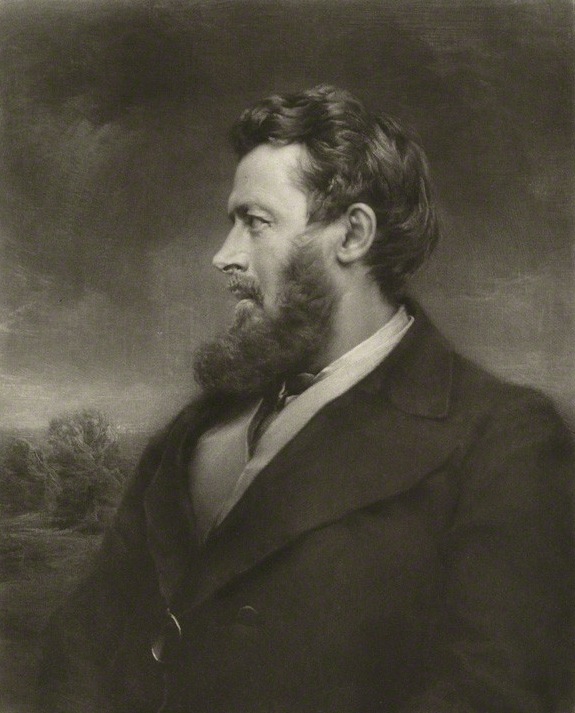“È bene non avere vizi, è male non avere tentazioni.”
da "Sir George Cornewall Lewis", in Biographical Studies
Walter Bagehot è stato un giornalista britannico, che scrisse di politica, affari economici ed argomenti correlati. Wikipedia

“È bene non avere vizi, è male non avere tentazioni.”
da "Sir George Cornewall Lewis", in Biographical Studies
“Uno dei dolori più forti per la natura umana è causato dal dolore di una nuova idea.”
da Physics and Politics, Ch. 5, "The Age of Discussion"
Sir Robert Peel
Biographical Studies (1907)
No. III, "The Monarchy (continued)", p. 58
The English Constitution (1867)
Origine: Physics and Politics http://www.gutenberg.org/dirs/etext03/phypl10.txt (1869), Ch. 5
Contesto: I wish the art of benefiting men had kept pace with the art of destroying them; for though war has become slow, philanthropy has remained hasty. The most melancholy of human reflections, perhaps, is that, on the whole, it is a question whether the, benevolence of mankind does most good or harm. Great good, no doubt, philanthropy does, but then it also does great evil. It augments so much vice, it multiplies so much suffering, it brings to life such great populations to suffer and to be vicious, that it is open to argument whether it be or be not an evil to the world, and this is entirely because excellent people fancy that they can do much by rapid action — that they will most benefit the world when they most relieve their own feelings; that as soon as an evil is seen "something" ought to be done to stay and prevent it.
Origine: Physics and Politics http://www.gutenberg.org/dirs/etext03/phypl10.txt (1869), Ch. 2, The Use of Conflict
Contesto: The great difficulty which history records is not that of the first step, but that of the second step. What is most evident is not the difficulty of getting a fixed law, but getting out of a fixed law; not of cementing (as upon a former occasion I phrased it) a cake of custom, but of breaking the cake of custom; not of making the first preservative habit, but of breaking through it, and reaching something better.
“The issue put before these electors was, which of two rich people will you choose?”
Introduction, p. xiii
The "old electors" Bagehot refers to were the £10 borough householders enfranchised by the Reform Act of 1832.
The English Constitution (1867)
Contesto: But the mass of the old electors did not analyse very much: they liked to have one of their "betters" to represent them; if he was rich they respected him much; and if he was a lord, they liked him the better. The issue put before these electors was, which of two rich people will you choose? And each of those rich people was put forward by great parties whose notions were the notions of the rich—whose plans were their plans. The electors only selected one or two wealthy men to carry out the schemes of one or two wealthy associations.
“The reason why so few good books are written is, that so few people that can write know anything.”
Shakespeare
Literary Studies (1879)
Contesto: The reason why so few good books are written is, that so few people that can write know anything. In general an author has always lived in a room, has read books, has cultivated science, is acquainted with the style and sentiments of the best authors, but he is out of the way of employing his own eyes and ears. He has nothing to hear and nothing to see. His life is a vacuum.
No. V, The House of Commons, p. 155
Bagehot was commenting on the method of selecting Presidential candidates in the United States.
The English Constitution (1867)
[ART. VII—John Milton, National Review, July 1859, 9, 150–186, https://babel.hathitrust.org/cgi/pt?id=mdp.39015027193559;view=1up;seq=184] (quote from p. 174)
John Milton (1859)
“To a great experience one thing is essential — an experiencing nature.”
Shakespeare
Literary Studies (1879)
No. III, "The Monarchy (continued)", p. 75
The English Constitution (1867)
Jim Bakker, quoted in Redeeming America: Piety and Politics in the New Christian Right by Michael Lienesch (UNC Press, 1993), p. 45
Misattributed
Origine: Physics and Politics https://www.gutenberg.org/ebooks/4350 (1869), Ch. 5
No. V, The House of Commons, p. 137
The English Constitution (1867)
“A constitutional statesman is in general a man of common opinions and uncommon abilities.”
Sir Robert Peel
Biographical Studies (1907)
“Nations touch at their summits.”
No. IV, The House of Lords, p. 120
The English Constitution (1867)
No. I, "The Cabinet", p. 29
The English Constitution (1867)
No. I, "The Cabinet", p. 14
The English Constitution (1867)
“It is good to be without vices, but it is not good to be without temptations.”
Sir George Cornewall Lewis
Biographical Studies (1907)
[ART. I—Edward Gibbon, National Review, 2, January 1856, 1–42, https://babel.hathitrust.org/cgi/pt?id=nyp.33433081643169;view=1up;seq=40] (quote p. 28)
Edward Gibbon (1856)
[ART. I—Edward Gibbon, National Review, 2, January 1856, 1–42, https://babel.hathitrust.org/cgi/pt?id=nyp.33433081643169;view=1up;seq=41] (quote p. 29)
Edward Gibbon (1856)
Origine: Lombard Street: A Description of the Money Market http://www.gutenberg.org/dirs/etext03/lsadm10.txt (1873), Ch. I, Introductory
“Cabinet governments educate the nation; the presidential does not educate it, and may corrupt it.”
No. I, "The Cabinet", p. 19
The English Constitution (1867)
(quote from p. 179)
John Milton (1859)
Wordsworth, Tennyson and Browning
Literary Studies (1879)